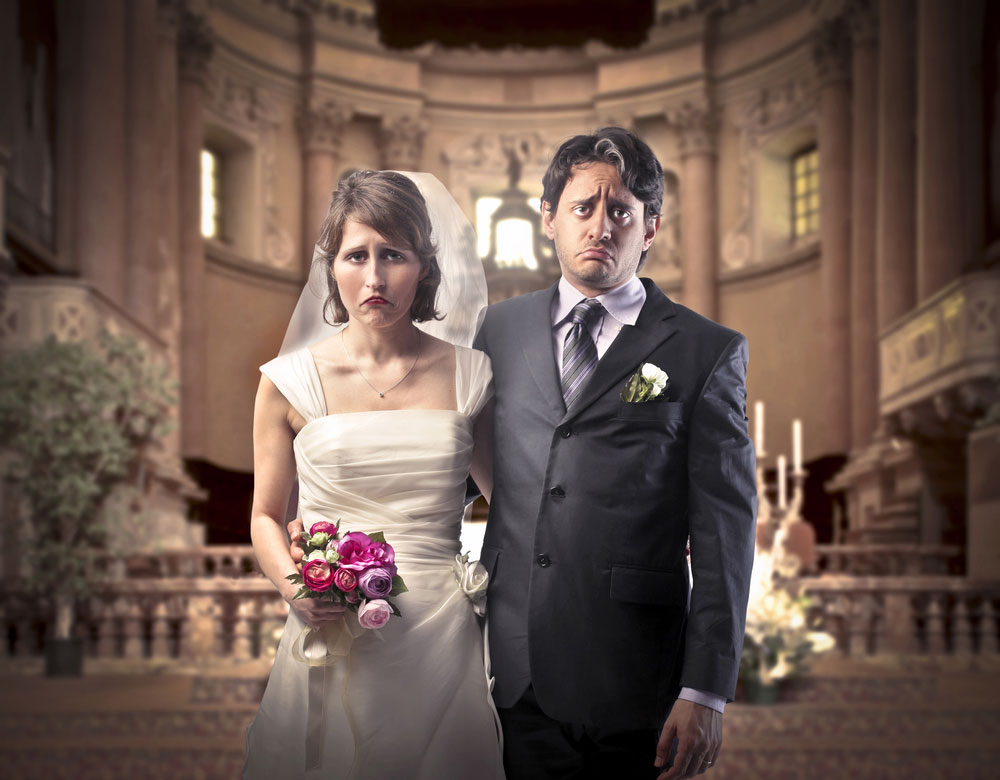What If Someone Objects at Your Wedding?

Get the world’s most fascinating discoveries delivered straight to your inbox.
You are now subscribed
Your newsletter sign-up was successful
Want to add more newsletters?

Delivered Daily
Daily Newsletter
Sign up for the latest discoveries, groundbreaking research and fascinating breakthroughs that impact you and the wider world direct to your inbox.

Once a week
Life's Little Mysteries
Feed your curiosity with an exclusive mystery every week, solved with science and delivered direct to your inbox before it's seen anywhere else.

Once a week
How It Works
Sign up to our free science & technology newsletter for your weekly fix of fascinating articles, quick quizzes, amazing images, and more

Delivered daily
Space.com Newsletter
Breaking space news, the latest updates on rocket launches, skywatching events and more!

Once a month
Watch This Space
Sign up to our monthly entertainment newsletter to keep up with all our coverage of the latest sci-fi and space movies, tv shows, games and books.

Once a week
Night Sky This Week
Discover this week's must-see night sky events, moon phases, and stunning astrophotos. Sign up for our skywatching newsletter and explore the universe with us!
Join the club
Get full access to premium articles, exclusive features and a growing list of member rewards.
In this weekly series, Life's Little Mysteries provides expert answers to challenging questions.
Except for melodramatic movie weddings, the minister's instruction that "if anyone can show just cause why this couple cannot lawfully be joined together in matrimony, let them speak now or forever hold their peace" almost always gets omitted from ceremonies these days.
All three wedding officiants contacted for this article said they never utter the line. "It has become obsolete," said Paula Posman, a New York City-based officiant who runs the wedding services company A New York Way to Say I Do.
The tradition has been phased out because no legitimate grounds remain for objecting to a wedding. "You can't object simply because you're in love with the bride. It has to be a legal reason why the couple can't wed," Posman told Life's Little Mysteries. "But today, the legal aspects of a wedding are squared away before the couple gets to the altar, so most officiants just don't ask the question." No point creating an awkward silence for nothing.
But in the past, what sort of objections might have been raised?
In the bygone days of charlatans, swindlers, elopements and bad record-keeping, "speak now or forever hold your peace" was a last-ditch effort to bring to light any illicit shenanigans that would nullify a wedding in the eyes of God. According to the Canon Law of the Catholic Church, impediments to a marriage include either the bride or groom being married already, having made a vow of celibacy, being underage, having been kidnapped or forced to wed, not being baptized, being incapable of having sexual intercourse, or having killed the other's former spouse. There are also stipulations about how closely a couple can be related by blood, marriage and adoption. [5 Strange Courting Rituals from Around the World]
The rules differed across the various faiths, but in almost any Christian country, if someone stormed through the church doors just in the nick of time and swore that the groom had a wife in the next town over, or — worse — was the bride's long-lost brother, these would constitute legitimate objections. According to the Catholic Encyclopedia, the testimony would then have to be delivered under oath, and the priest would be obliged to defer the wedding and investigate the claim.
Get the world’s most fascinating discoveries delivered straight to your inbox.
Today, a marriage's legality is established prior to the ceremony, when a couple obtains a marriage license at their city clerk's office. Modern records (such as social security numbers, birth certificates, marriage and divorce papers) are so thorough that schemes like polygamous marriages rarely slip under the radar, even across borders. To get married in the United States, foreigners often must present a document issued by their country of origin proving they aren't married there.
So, if someone objected at a wedding today, Posman said, "I would pause for a second and say, 'That's not a legal reason,' and continue with the ceremony."
This story was provided by Life's Little Mysteries, a sister site to LiveScience. Follow Natalie Wolchover on Twitter @nattyover or Life's Little Mysteries @llmysteries. We're also on Facebook & Google+.
Natalie Wolchover was a staff writer for Live Science from 2010 to 2012 and is currently a senior physics writer and editor for Quanta Magazine. She holds a bachelor's degree in physics from Tufts University and has studied physics at the University of California, Berkeley. Along with the staff of Quanta, Wolchover won the 2022 Pulitzer Prize for explanatory writing for her work on the building of the James Webb Space Telescope. Her work has also appeared in the The Best American Science and Nature Writing and The Best Writing on Mathematics, Nature, The New Yorker and Popular Science. She was the 2016 winner of the Evert Clark/Seth Payne Award, an annual prize for young science journalists, as well as the winner of the 2017 Science Communication Award for the American Institute of Physics.
 Live Science Plus
Live Science Plus












